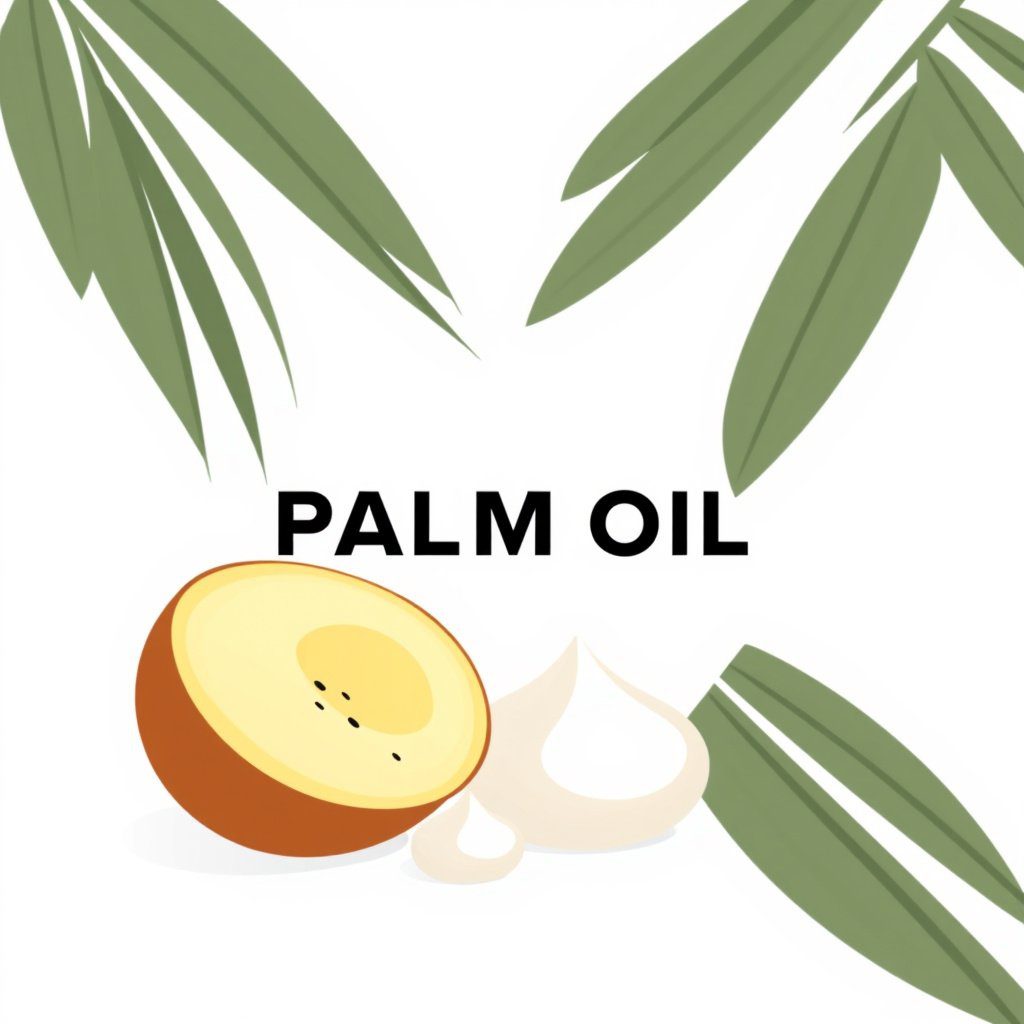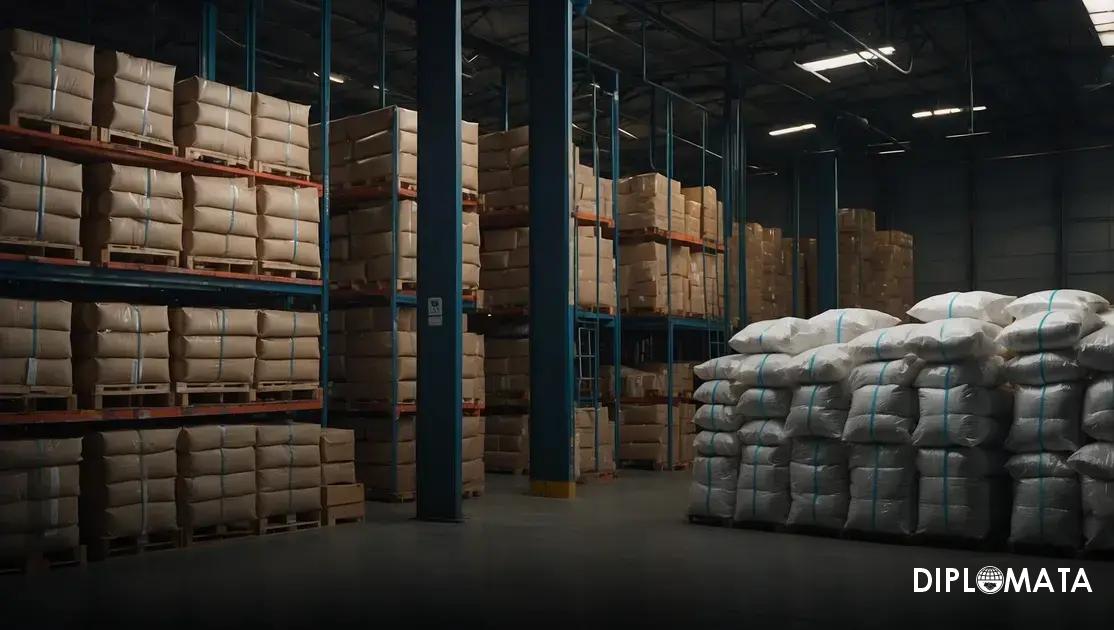Regulatory compliance and palm oil fatty acids import require a precise blend of quality disciplines, documentation discipline, and proactive risk management.
For procurement teams and commodity traders, the path from source to shelf is defined by how well you align with international standards, regional requirements, and the realities of a volatile supply chain.
The goal is not only legal clearance but also consistent product performance that supports downstream formulations in HPPC, pharma, and food ingredients.
In practice, achieving this balance means designing robust QA programs, selecting trusted partners, and building a traceable, sustainable supply network.
With two decades of market experience, Diplomata Comercial has guided numerous manufacturers and distributors through this complex landscape.
Our approach blends technical rigor with practical execution—ensuring your imports meet the exacting demands of regulators and customers alike.
In this article, you’ll find actionable guidelines, best practices, and real-world insights on how to maintain palm oil fatty acid quality while navigating regulatory requirements across major markets.
Whether you are expanding into new regions or optimizing existing import flows, the framework below helps you operate with confidence and speed.
Regulatory Landscape for Palm Oil Fatty Acids Import in 2025
Global Standards to Monitor
Global standards shape how palm oil fatty acids are tested, labeled, and traded.
The most impactful frameworks center on identity, purity, and contaminant controls, with a growing emphasis on sustainability and supply chain transparency.
For buyers and suppliers, the key is to translate these standards into practical specifications that your QA teams can verify at every stage—from incoming raw materials to final import clearance.
In the context of palm oil fatty acid quality, regulatory expectations increasingly converge on traceability, consistent analytical methods, and harmonized documentation that stands up to audits and traceable recalls.
In practice, you’ll encounter baseline references from international food, chemical, and environmental authorities, along with industry guidelines governing oleochemicals.
The right approach is to maintain a living set of internal standards aligned with those external benchmarks.
This ensures that when regulators or customers ask for data, you can answer with credible, verified information rather than generic assurances.
Diplomata Comercial translates these global expectations into concrete processes that your teams can trust and execute against every import cycle.
Key Market Regulations: United States, European Union, and Brazil
The United States and the European Union impose stringent import controls that focus on safety, labeling, and document integrity.
In parallel, Brazil—home to significant oleochemical production—imposes its own regulatory posture that affects import eligibility, tariff classification, and local oversight.
Understanding how these regions intersect is essential for a seamless supply chain.
For instance, US and EU requirements often demand validated testing results, rigorous chain-of-custody records, and clear declarations of composition for palm oil fatty acids.
Brazil adds another layer of compliance, with customs regimes that favor transparent origin data, accurate declarations, and adherence to national environmental and worker-safety standards.
With this multi-regional complexity, a robust import program must integrate cross-border compliance checks, not as an afterthought, but as a core control point in procurement planning.
Cross-border Data and Documentation
Digital documentation and data integrity have become non-negotiable.
Regulators increasingly expect consistent, machine-readable records that enable rapid verification of identity, purity, and origin.
You should implement a centralized documentation stack that captures the certificate of analysis, supplier declarations, bill of lading, and regulatory filings in a harmonized format.
This not only streamlines customs clearance but also supports post-market surveillance and any potential audits.
Diplomata Comercial leverages decades of practice to help you establish documentation workflows that reduce bottlenecks and improve data fidelity across your entire import portfolio.
Quality Standards and Testing Protocols for palm oil fatty acid quality
Quality Metrics and Specifications
Quality specifications for palm oil fatty acids typically focus on identity, purity, and contaminant profile.
Critical metrics include free fatty acid content, color, moisture, oxidation stability, heavy metals, pesticide residues, and trans-fat indicators where applicable.
Establishing rigorous target ranges—tied to your downstream use—helps avoid rework, recalls, or rejected shipments.
A practical approach is to translate broad regulatory requirements into a formal product specification sheet that your suppliers sign off on.
In practice, you’ll find that palm oil fatty acid quality depends as much on supplier process control as on analytical results, so your QA protocol should couple testing with process audits at the source.
Analytical Methods and Quality Assurance
Analytical methods should be validated, traceable, and aligned with international norms.
Common methodologies include GC-FID for fatty acid composition, HPLC for impurities, and established methods for moisture and acid value.
Your QA program should specify instrument calibration, proficiency testing, and sample handling procedures to ensure consistent results across lots.
Import quality assurance benefits from a tiered testing strategy: routine screening on every batch, full panel analysis on first orders, and spot checks for ongoing supplier performance.
This disciplined approach protects palm oil fatty acid quality while providing auditable records for regulators and customers alike.
Documentation, Certification, and Customs Clearance
Documentation Checklist
Effective import compliance relies on a concise yet comprehensive set of documents.
At a minimum, expect to manage certificates of analysis, supplier qualification documentation, certificates of origin, commercial invoices, packing lists, and bill of lading copies.
Regulatory filings may also include product safety data sheets, statement of conformity, and sustainability declarations.
The goal is to have a documentation suite that is consistently complete, accurately reflects product specifications, and supports rapid clearance in your target markets.
A well-maintained data environment reduces the risk of delays and demonstrates your commitment to quality and compliance—attributes that buyers value when selecting a supplier of palm oil fatty acids.
Certification Examples
Certifications provide external validation of your product quality and supply chain integrity.
Typical certifications relevant to palm oil fatty acids include quality management system standards, supplier audits, and commodity-specific attestations (for example, traceability and sustainability claims).
While the precise certificates depend on your market and customer requirements, the underlying principle remains the same: demonstrate control over identity, purity, and provenance.
Diplomata Comercial supports clients by aligning supplier qualifications with industry best practices and by providing practical guidance on assembling the right set of certificates for regulatory acceptance and customer confidence.
Digital Records and Data Integrity
The shift to digital records has accelerated regulatory efficiency, but it also elevates the need for data integrity.
Implement secure storage, version control, and access controls for all import documentation.
Ensure that electronic certificates carry verifiable signatures and timestamps, reducing the likelihood of disputes during audits.
A digitally robust approach also enables faster sharing with customers and regulators.
By incorporating these digital safeguards, you safeguard palm oil fatty acid quality data across the entire import journey and build trust with stakeholders.
Supply Chain Traceability and Sustainability in Palm Oil Fatty Acids
Traceability Frameworks
Traceability is the backbone of modern oleochemical sourcing.
You should be able to trace material from its origin through processing and into your finished product.
Effective traceability supports recall readiness, regulatory transparency, and supplier accountability.
A mature approach combines batch-level documentation with supplier audits and, where possible, blockchain-enabled or other immutable data records.
For palm oil fatty acids, traceability translates into clearer origin stories, dependable QA results, and improved supply resilience.
Diplomata Comercial emphasizes traceability as a practical capability, not a marketing claim, helping you build a reliable, auditable supply chain.
Sustainability Declarations and Certifications
Sustainability is no longer a nice-to-have; it is a market expectation.
Buyers increasingly demand evidence of responsible sourcing, environmental stewardship, and social governance in palm oil fatty acids.
Key elements include third-party certifications, supplier code of conduct compliance, and transparent reporting on deforestation risk and social impact.
The right program integrates sustainability data with QA metrics so that environmental claims align with measured product quality.
Diplomata Comercial incorporates sustainability as a core dimension of supplier evaluation, ensuring your imports meet both regulatory and societal expectations while preserving product performance.
Best Practices for Vendor Vetting and Import Risk Management
Evaluating Suppliers for Long-Term Reliability
Choosing the right supplier is the first defense against compliance risk.
Your evaluation should combine technical capability, QA culture, and supply continuity.
Key questions include: Do they maintain validated analytical methods? Can they demonstrate consistent batch-to-batch performance? How do they handle deviations, non-conforming materials, and corrective actions? A robust supplier scorecard helps translate qualitative impressions into repeatable decisions.
By narrating supplier performance with concrete metrics and recent audit outcomes, you move from trust-based sourcing to evidence-based procurement—an essential shift for palm oil fatty acid quality.
Contractual Safeguards and Quality Assurance
Clear contracts align expectations, define acceptance criteria, and set consequences for failure to meet specifications.
Include precise product specifications, testing requirements, and a response plan for non-conforming lots.
Consider time-bound QA checks, limits on hold times, and defined communication protocols for deviations.
In practice, strong contractual safeguards reduce friction with regulatory bodies and speed up clearance processes, while ensuring you maintain the quality of palm oil fatty acids throughout the import cycle.
Diplomata Comercial: A Partner for Compliance and Quality
Our 20-Year Journey
Diplomata Comercial is a reference in the chemical and oleochemical sectors, delivering manufacturing, import/export, and distribution excellence.
With a history spanning two decades, we’ve built a global network that supports HPPC, pharmaceutical, industrial chemistry, food ingredients, and animal nutrition industries.
Our approach blends technical rigor with pragmatic logistics—ensuring high standards of palm oil fatty acid quality and reliable supply across borders.
We draw on real-world experience to help clients accelerate onboarding of new suppliers, optimize QA processes, and navigate the regulatory maze with confidence.
Case Studies and Methodologies
Our methodologies emphasize practical risk management, traceability, and proactive supplier development.
We’ve supported clients in aligning with regulatory expectations across major markets, implementing robust testing regimes, and establishing end-to-end documentation flows that streamline customs clearance.
The result is a more predictable supply chain, faster time-to-market, and stronger customer trust.
While every engagement is unique, the underlying principle remains constant: a combination of technical expertise, enterprise-grade processes, and a global footprint delivers tangible regulatory and commercial advantages for palm oil fatty acids import.
Next Steps: Actionable Roadmap for Importers
Immediate Actions for Your Team
1) Conduct a gap analysis of your current import processes against global and regional standards, focusing on palm oil fatty acid quality metrics, data integrity, and documentation completeness. 2) Build or refine a supplier qualification plan that prioritizes traceability, QA capability, and sustainability commitments. 3) Establish a digital documentation hub with version control and secure access for internal and external stakeholders. 4) Create a short list of target markets and map the regulatory requirements you must meet in those jurisdictions.
How Diplomata Can Help You Move Faster
We offer end-to-end support—from supplier vetting and QA framework design to compliant documentation packages and regional import guidance.
Leverage our 20-year track record to accelerate supplier onboarding, reduce clearance times, and improve overall product quality.
Our team can tailor a palm oil fatty acids import program that aligns with your market strategy and regulatory posture, while maintaining rigorous QA standards and transparent reporting.
Reach out to discuss how a partnership with Diplomata Comercial can translate into faster approvals, steadier supply, and stronger competitive positioning in both domestic and international markets.
Próximos Passos Estratégicos
Summary: Embracing a disciplined regulatory approach and a robust quality framework is vital to sustaining growth in the palm oil fatty acids market.
By aligning global standards, implementing rigorous QA protocols, and embedding traceability into every shipment, your organization minimizes risk and enhances customer trust.
Diplomata Comercial stands ready to translate complex regulations into actionable operations, drawing on two decades of hands-on experience in chemical and oleochemical supply chains.
If you’re seeking a partner that combines technical credibility with practical execution, contact us to start building a compliant, high-quality import program that scales with your business.
Frequently Asked Questions
What does palm oil fatty acid quality mean from a regulatory perspective?
Regulatory terms for palm oil fatty acid quality focus on identity, purity, and contaminant controls, plus traceability and consistent analytical methods. Regulators require clear documentation that the product can be traced from source to importer and that QA controls meet international standards. In practice, this means aligning specs, testing, and record-keeping across markets.
What documents are essential for regulatory compliance when importing palm oil fatty acids?
Essential documents include certificates of analysis, certificates of origin, MSDS/SDS, and supplier sustainability certifications. Depending on the region, you may also need import declarations, bills of lading with lot details, and evidence of due diligence for contamination and mislabeling. Consistent documentation reduces clearance delays and audit findings.
How can companies ensure traceability of palm oil fatty acids throughout the supply chain?
Traceability is built with lot-level tracking, supplier audits, and digital data capture that links material from origin to shipment. Use chain-of-custody records and integrate QA data with procurement and logistics systems to ensure visibility at every step. Regularly verify data accuracy to prevent gaps.
What factors should buyers consider when assessing supplier capabilities for palm oil fatty acids quality?
When assessing suppliers, look for a robust QA program, validated analytical methods, and recent, transparent test results. Check for certifications, regulatory compliance history, and the ability to verify lots via independent labs. Request evidence of continuous improvement and corrective actions.
What are the main regulatory challenges faced when importing palm oil fatty acids into different regions?
Major regulatory challenges include varying identity/purity definitions, divergent testing methods, and different contaminant limits across regions. Sustainability and traceability requirements are increasingly integrated, adding complexity to supplier selection. Proactive alignment of specs with target markets helps mitigate delays.
Which testing methods are commonly used to verify palm oil fatty acid quality?
Common testing methods include fatty acid profiling by GC, along with measures of acid value, peroxide value, moisture, and contaminants. Ensure methods are validated and aligned with international standards, and that labs are properly accredited. This foundation supports consistent palm oil FA quality across imports.
How do sustainability standards influence regulatory compliance for palm oil fatty acids?
Sustainability standards and supply chain transparency influence compliance by requiring origin verification and responsible sourcing. Certifications like RSPO can improve regulatory acceptance and reduce risk. Greater traceability also supports faster approvals in complex markets.
What are practical steps to build an effective QA program for palm oil fatty acid imports?
An effective QA program starts with clear, regulator-aligned specifications and trusted supplier partnerships. Implement inbound QC, ongoing supplier audits, and robust documentation with a clear corrective action process. Continuous monitoring and improvement keep palm oil fatty acid quality compliant from source to shelf.





